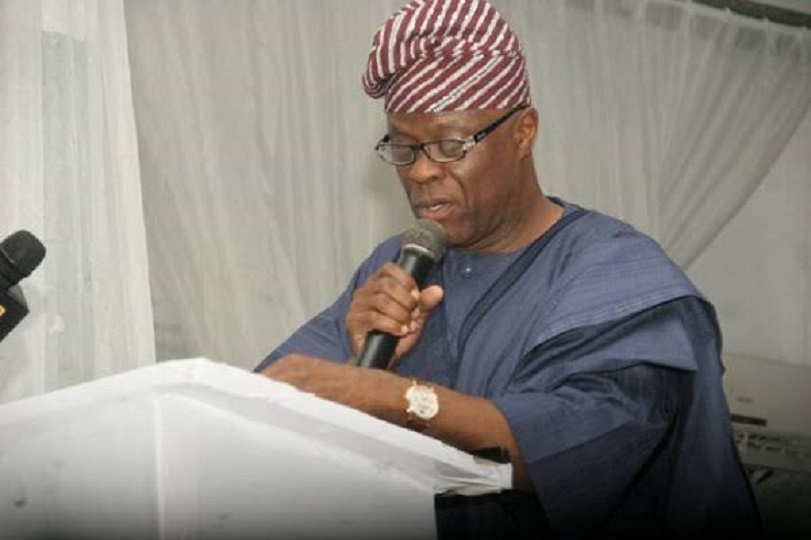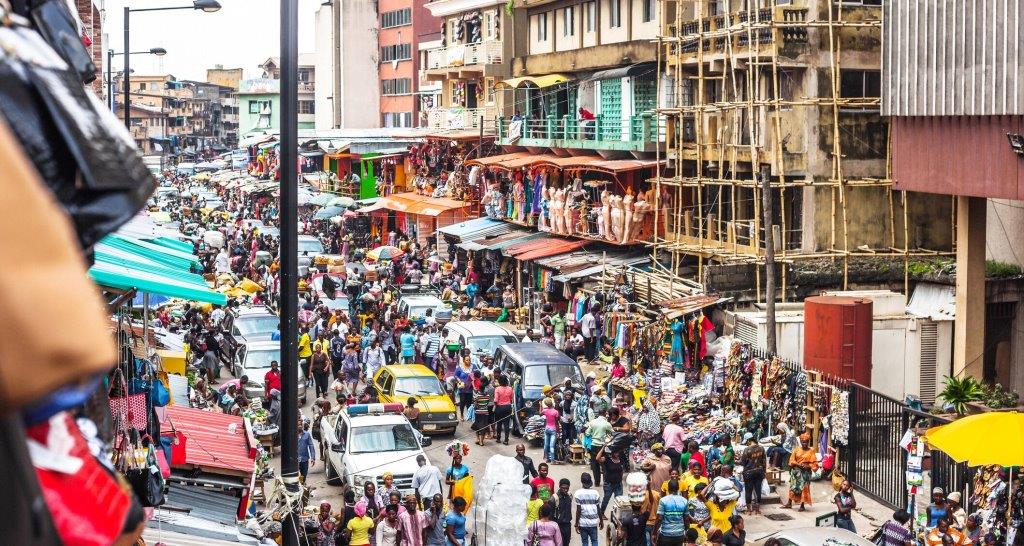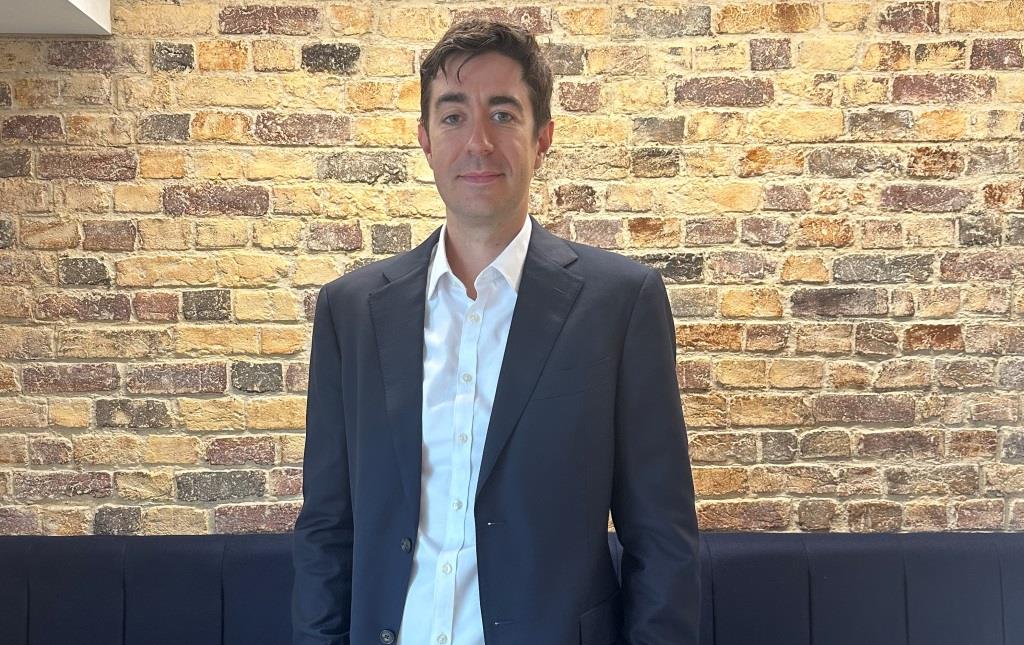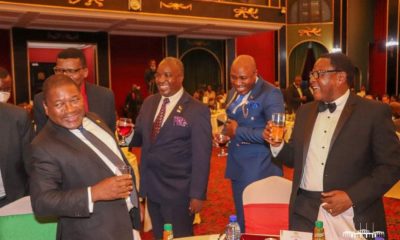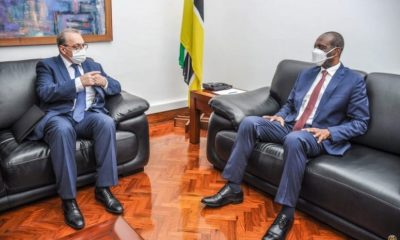World
Mozambique Risks Economic Stability Over Russian Oil
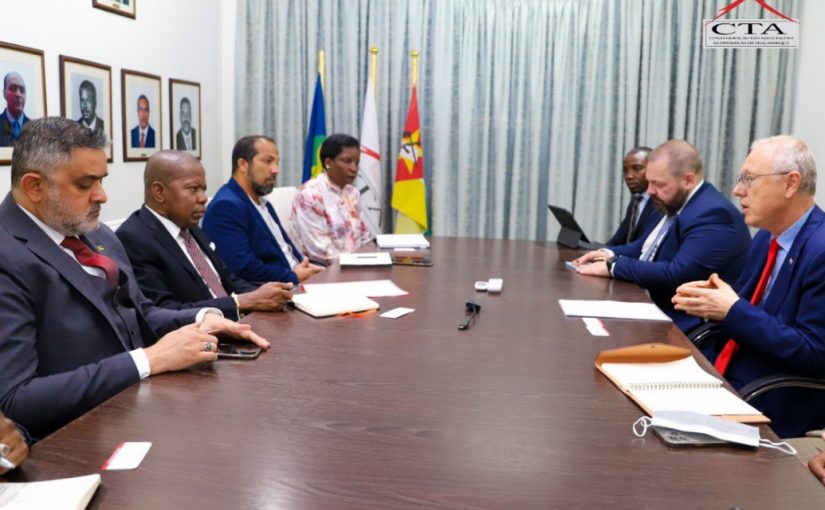
By Kestér Kenn Klomegâh
Mozambique risks destabilizing its economy and further losing western development finance if it goes ahead to purchase sanctioned oil from Russia.
With the return of western development finance institutions such International Monetary Fund (IMF), World Bank and the USAID, and currently showing tremendous support for sustainable development projects and programmes, Mozambique would have to stay focused and stay clear of the complexities and contradictions of the Russia-Ukraine crisis.
Mozambique needs to seriously concentrate on and pursue its plans of exporting liquefied natural gas (LNG), extracted from the Coral South field, off the coast of Palma district, in the northern province of Cabo Delgado, possibly starting this October. It marks an economic turning point and opens a new chapter for its revenue sources.
According to our research, Mozambique will become the first country in East Africa to export LNG. It will be produced on a floating platform, belonging to a consortium led by the Italian energy company, Eni. The platform, built in a Korean shipyard, arrived in Mozambican waters in January and is now anchored in Area Four of the Rovuma Basin, some 40 kilometres from the mainland.
This is the first deep-water platform in the world to operate at a water depth of about two thousand meters. The Coral South project is expected to produce 3.4 million tons of LNG per year over its estimated 25-year lifespan.
A second project is planned for Area One of the Rovuma Basin, where the operator is the French company TotalEnergies. The planned LNG plants for this project, are onshore, in the Afungi Peninsula of the Palma district. The jihadists seized Palma town in March 2021, and TotalEnergies withdrew all of its staff from the district. Subsequently, the Mozambican defence and security forces and their Rwandan allies drove the terrorists out of both Palma and the neighbouring district of Mocimboa da Praia.
The current global economic situation is changing, and competition and rivalry for markets are also at their height. During the past months, Russia has cut its export of gas as a reciprocal action against European Union members and has redirected its search for new clients in the Asian region. It has already offered discounted prices to China and India, and now looking beyond Africa.
United States Special Envoy to the United Nations, Thomas-Greenfield, has made one point clear in her speeches with African leaders that “African nations are free to buy grain from Russia but could face consequences if they trade in U.S.-sanctioned commodities such as oil from Russia.”
“Countries can buy Russian agricultural products, including fertilizer and wheat,” Linda Thomas-Greenfield said. But she added that “if a country decides to engage with Russia, where there are sanctions, then they are breaking those sanctions. We caution countries not to break those sanctions because then … they stand the chance of having actions taken against them.”
Russian Ambassador to Mozambique, Alexander Surikov, after a meeting with the Confederation of Economic Associations of Mozambique (CTA), had proposed that the Mozambican authorities could buy Russian oil in roubles after Moscow presented the option to Maputo. Ambassador Surikov further expressed Russian companies’ continuing interest in investing in Mozambique. Likewise, the possibility was raised of Russia opening a bank in Mozambique focused on supporting bilateral trade and investment.
Russia previously had a VTB bank in Maputo, later involved in opaque deals. It was a financial scandal involving three fraudulent security-linked companies, and two banks – Credit Suisse and VTB of Russia, relating to illicit loan guarantees issued by the government under former President Armando Guebuza. Until today, it is popularly referred to as the “Hidden Debts” scandal involving US$2.7 billion (€2.3 million), the financial scandal that happened in 2013.
In the aftermath, financial institutions exited, projects were abandoned and this southern African country has struggled to rebound economically. Now they are returning with new financial assistance programmes that would promote sustainable and inclusive growth and long-term macroeconomic stability.
In the context of the current cereal crisis, one other issue that the ambassador raised was how Mozambican companies could have direct access to Russian wheat suppliers. In this regard, it was not clear how Russian wheat would enter the market and how it would be paid for because Mozambique uses principally the US dollar in its foreign transactions, and Russia cannot conduct transactions using the US currency due to the sanctions imposed following the invasion of Ukraine.
“The rouble and the medical are worthy currencies that do not need the benevolence of some other countries that control the international system,” the Russian diplomat explained, adding that Moscow wanted to strengthen cooperation with Maputo.
Nonetheless, Minister of Mineral Resources and Energy of Mozambique, Carlos Zacarias, admittedly the possibility of buying Russian oil in roubles. “I am sure that we will study and verify the feasibility of this offer from Russia. If it is viable, for sure Russian oil will be acquired in roubles,” Carlos Zacarias said.
Mozambique’s receptivity to the Russian proposal stems from the fact that the world is experiencing a peculiar moment, characterized by great volatility in oil prices on the international market as a result of the Russia-Ukraine war.
Mozambique was among the countries that abstained on two resolutions that were voted on by the General Assembly of the United Nations, one condemning Russia for the humanitarian crisis in Ukraine as a consequence of the war and the other suspending Moscow from the Human Rights Council.
The Mozambican Liberation Front (Frelimo, the ruling party) was an ally of Moscow during the time of the former USSR and received military support during the struggle against Portuguese colonialism and economic aid after independence in 1975.
Mozambique and Russia have admirable political relations. Mozambique has to focus on trade and economic development with external partners. According to data provided by CTA, the annual volume of economic transactions between Mozambique and Russia is estimated to be, at least, US$100 million (€98.5 million at current exchange rates).
Experts aptly point to the fact that there is a tremendous opportunity window for Mozambique. With partners including ExxonMobil Corp., China National Petroleum Corp. and Mozambican state-owned Empresa Nacional de Hidrocarbonetos, Mozambique has to move towards its own energy development. These past few years, experts have also reiterated adopting a suitable mechanism, mapping out strategies and utilizing financial support for sustainable development.
Mozambique has considerable gas resources and the right decision is to move toward both an onshore concept and an offshore concept. The ultimate goal has to establish connectivity between its resource exploration and national development. The idea is to foster economic relations based on its domestic development priorities. And consequently, it has to determine influential external investment partners ready to invest funds and, in practical terms, committed to supporting sustainable development in the country.
The Mozambique LNG offshore project, valued at around $20 billion, aims to extract about 13.12 million tonnes of recoverable gas over 25 years and generate profits of US$60.8 billion, half of which will go to the Mozambican state.
The process to achieve this task has started and would generate 14,000 possible jobs in phases – first creating 5,000 jobs for Mozambicans in the construction phase and 1,200 in the operational phase, with a plan to train 2,500 technicians and so forth. These projects also have a great capacity to create indirect jobs, with foreign labour decreasing throughout the project and Mozambican labour increasing. Most of these jobs are expected to be provided by contractors and subcontractors.
Several corporate projects came to a halt due to armed insurgency in 2017 in Cabo Delgado province. The entry of foreign troops to support Mozambican forces in mid-2021 has improved the security situation. Since July 2021, an offensive by government troops was fixed, with the support of Rwandans and later by the Standby Joint Force consisting of forces from members of the Southern African Development Community (SADC).
Cabo Delgado province, located in northern Mozambique, is rich in natural gas. Although the gas from the three projects approved so far has a destination, Mozambique has proven reserves of over 180 trillion cubic feet, according to data from the Ministry of Mineral Resources and Energy. With an approximate population of 30 million, Mozambique is endowed with natural resources. It is a member of the Southern Africa Development Community (SADC) and the African Union.
World
Today’s Generation of Entrepreneurs Value Flexibility, Autonomy—McNeal-Weary

By Kestér Kenn Klomegâh
The Young African Leaders Initiative (YALI) is the United States’ signature step to invest in the next generation of African leaders. Since its establishment in 2010 by Obama administration, YALI has offered diverse opportunities, including academic training in leadership, governance skills, organizational development and entrepreneurship, and has connected with thousands of young leaders across Africa. This United States’ policy collaboration benefits both America and Africa by creating stronger partnerships, enhancing mutual prosperity, and ensuring a more stable environment.
In our conversation, Tonya McNeal-Weary, Managing Director at IBS Global Consulting, Inc., Global Headquarters in Detroit, Michigan, has endeavored to discuss, thoroughly, today’s generation of entrepreneurs and also building partnerships as a foundation for driving positive change and innovation in the global marketplace. Here are the excerpts of her conversation:
How would you describe today’s generation of entrepreneurs?
I would describe today’s generation of entrepreneurs as having a digital-first mindset and a fundamental belief that business success and social impact can coexist. Unlike the entrepreneurs before them, they’ve grown up with the internet as a given, enabling them to build global businesses from their laptops and think beyond geographic constraints from day one. They value flexibility and autonomy, often rejecting traditional corporate ladders in favor of building something meaningful on their own terms, even if it means embracing uncertainty and financial risk that previous generations might have avoided.
And those representing the Young African Leaders Initiative, who attended your webinar presentation late January 2026?
The entrepreneurs representing the Young African Leaders Initiative are redefining entrepreneurship on the continent by leveraging their unique perspectives, cultural heritage, and experiences. Their ability to innovate within local contexts while connecting to global opportunities exemplifies how the new wave of entrepreneurs is not confined by geography or conventional expectations.
What were the main issues that formed your ‘lecture’ with them, Young African Leaders Initiative?
The main issues that formed my lecture for the Young African Leaders Initiative were driven by understanding the importance of building successful partnerships when expanding into the United States or any foreign market. During my lecture, I emphasized that forming strategic alliances can help entrepreneurs navigate unfamiliar business environments, access new resources, and foster long-term growth. By understanding how to establish strong and effective partnerships, emerging leaders can position their businesses for sustainable success in global markets. I also discussed the critical factors that contribute to successful partnerships, such as establishing clear communication channels, aligning on shared goals, and cultivating trust between all parties involved. Entrepreneurs must be proactive in seeking out partners who complement their strengths and fill gaps in expertise or resources. It is equally important to conduct thorough due diligence to ensure that potential collaborators share similar values and ethical standards. Ultimately, the seminar aimed to empower YALI entrepreneurs with practical insights and actionable strategies for forging meaningful connections across borders. Building successful partnerships is not only a pathway to business growth but also a foundation for driving positive change and innovation in the global marketplace.
What makes a ‘leader’ today, particularly, in the context of the emerging global business architecture?
In my opinion, a leader in today’s emerging global business architecture must navigate complexity and ambiguity with a fundamentally different skill set than what was previously required. Where traditional leadership emphasized command-and-control and singular vision, contemporary leaders succeed through adaptive thinking and collaborative influence across decentralized networks. Furthermore, emotional intelligence has evolved from a soft skill to a strategic imperative. Today, the effective modern leader must possess deep cross-cultural intelligence, understanding that global business is no longer about exporting one model worldwide but about genuinely integrating diverse perspectives and adapting to local contexts while maintaining coherent values.
Does multinational culture play in its (leadership) formation?
I believe multinational culture plays a profound and arguably essential role in forming the kind of leadership required in today’s global business environment. Leaders who have lived, worked, or deeply engaged across multiple cultural contexts develop a cognitive flexibility that’s difficult to replicate through reading or training alone. More importantly, multinational exposure tends to dismantle the unconscious certainty that one’s own way of doing things is inherently “normal” or “best.” Leaders shaped in multicultural environments often develop a productive discomfort with absolutes; they become more adept at asking questions, seeking input, and recognizing blind spots. This humility and curiosity become strategic assets when building global teams, entering new markets, or navigating geopolitical complexity. However, it’s worth noting that multinational experience alone doesn’t automatically create great leaders. What matters is the depth and quality of cross-cultural engagement, not just the passport stamps. The formation of global leadership is less about where someone has been and more about whether they’ve developed the capacity to see beyond their own cultural lens and genuinely value differences as a source of insight rather than merely tolerating them as an obstacle to overcome.
In the context of heightening geopolitical situation, and with Africa, what would you say, in terms of, people-to-people interaction?
People-to-people interaction is critically important in the African business context, particularly as geopolitical competition intensifies on the continent. In this crowded and often transactional landscape, the depth and authenticity of human relationships can determine whether a business venture succeeds or fails. I spoke on this during my presentation. When business leaders take the time for face-to-face meetings, invest in understanding local priorities rather than imposing external agendas, and build relationships beyond the immediate transaction, they signal a different kind of partnership. The heightened geopolitical situation actually makes this human dimension more vital, not less. As competition increases and narratives clash about whose model of development is best, the businesses and nations that succeed in Africa will likely be those that invest in relationships characterized by reciprocity, respect, and long-term commitment rather than those pursuing quick wins.
How important is it for creating public perception and approach to today’s business?
Interaction between individuals is crucial for shaping public perception, as it influences views in ways that formal communications cannot. We live in a society where word-of-mouth, community networks, and social trust areincredibly important. As a result, a business leader’s behavior in personal interactions, their respect for local customs, their willingness to listen, and their follow-through on commitments have a far-reaching impact that extends well beyond the immediate meeting. The geopolitical dimension amplifies this importance because African nations now have choices. They’re no longer dependent on any single partner and can compare approaches to business.
From the above discussions, how would you describe global business in relation to Africa? Is it directed at creating diverse import dependency?
While it would be too simplistic to say global business is uniformly directed at creating import dependency, the structural patterns that have emerged often produce exactly that outcome, whether by design or as a consequence of how global capital seeks returns. Global financial institutions and trade agreements have historically encouraged African nations to focus on their “comparative advantages” in primary commodities rather than industrial development. The critical question is whether global business can engage with Africa in ways that build productive capacity, transfer technology, develop local talent, and enable countries to manufacture for themselves and for export—or whether the economic incentives and power irregularities make this structurally unlikely without deliberate policy intervention.
World
Russia Expands Military-Technical Cooperation With African Partners

By Kestér Kenn Klomegâh
Despite geopolitical complexities, tensions and pressure, Russia’s military arms and weaponry sales earned approximately $15 billion at the closure of 2025, according to Kremlin report. At the regular session, chaired by Russian President Vladimir Putin on Jan. 30, the Commission on Military and Technical Cooperation with Foreign Countries analyzed the results of its work for 2025, and defined plans for the future.
It was noted that the system of military-technical cooperation continued to operate in difficult conditions, and with increased pressure from the Western countries to block business relations with Russia. The meeting, however, admitted that export contracts have generally performed sustainably. Russian military products were exported to more than 30 countries last year, and the amount of foreign exchange exceeded $15 billion.
Such results provide an additional opportunity to direct funds to the modernization of OPC enterprises, to the expansion of their production capacities, and to advanced research. It is also important that at these enterprises a significant volume of products is civilian products.
The Russian system of military-technical cooperation has not only demonstrated effectiveness and high resilience, but has created fundamental structures, which allow to significantly expand the “geography” of supplies of products of military purpose and, thus strengthen the position of Russia’s leader and employer advanced weapons systems – proven, tested in real combat conditions.
Thanks to the employees of the Federal Service for Military Technical Cooperation and Rosoboronexport, the staff of OPC enterprises for their good faith. Within the framework of the new federal project “Development of military-technical cooperation of Russia with foreign countries” for the period 2026-2028, additional measures of support are introduced. Further effective use of existing financial and other support mechanisms and instruments is extremely important because the volumes of military exports in accordance with the 2026 plan.
Special attention would be paid to the expansion of military-technological cooperation and partnerships, with 14 states already implementing or in development more than 340 such projects.
Future plans will allow to improve the characteristics of existing weapons and equipment and to develop new promising models, including those in demand on global markets, among other issues – the development of strategic areas of military-technical cooperation, and above all, with partners on the CIS and the CSTO. This is one of the priority tasks to strengthen both bilateral and multilateral relations, ensuring stability and security in Eurasia.
From January 2026, Russia chairs the CSTO, and this requires working systematically with partners, including comprehensive approaches to expanding military-technical relations. New prospects open up for deepening military-technical cooperation and with countries in other regions, including with states on the African continent. Russia has been historically strong and trusting relationships with African countries. In different years even the USSR, and then Russia supplied African countries with a significant amount of weapons and military equipment, trained specialists on their production, operation, repair, as well as military personnel.
Today, despite pressure from the West, African partners express readiness to expand relations with Russia in the military and military-technical fields. It is not only about increasing supplies of Russian military exports, but also about the purchase of other weapons, other materials and products. Russia has undertaken comprehensive maintenance of previously delivered equipment, organization of licensed production of Russian military products and some other important issues. In general, African countries are sufficient for consideration today.
World
Trump Picks Kevin Warsh to Succeed Jerome Powell as Federal Reserve Chair
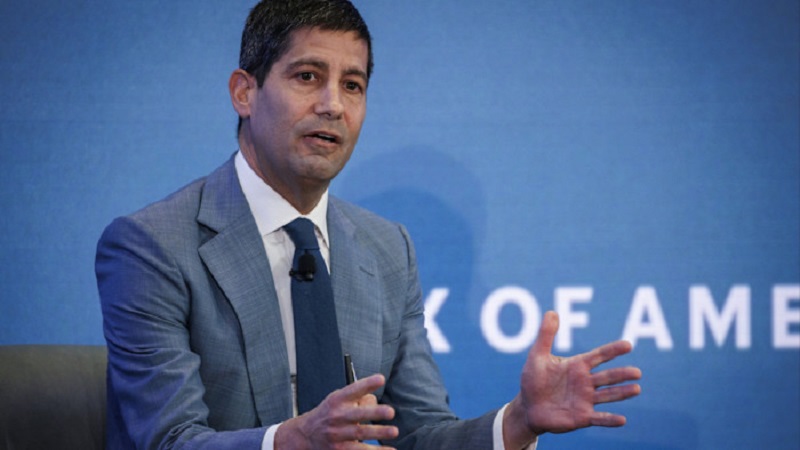
By Adedapo Adesanya
President Donald Trump has named Mr Kevin Warsh as the successor to Mr Jerome Powell as the Federal Reserve chair, ending a prolonged odyssey that has seen unprecedented turmoil around the central bank.
The decision culminates a process that officially began last summer but started much earlier than that, with President Trump launching a criticism against the Powell-led US central bank almost since he took the job in 2018.
“I have known Kevin for a long period of time, and have no doubt that he will go down as one of the GREAT Fed Chairmen, maybe the best,” Mr Trump said in a Truth Social post announcing the selection.
US analysts noted that the 55-year old appear not to ripple market because of his previous experience at the apex bank as Governor, with others saying he wouldn’t always do the bidding of the American president.
If approved by the US Senate, Mr Warsh will take over the position in May, when Mr Powell’s term expires.
Despite having argued for reductions recently, “Warsh has a long hawkish history that markets have not forgotten,” one analyst told Bloomberg.
President Trump has castigated Mr Powell for not lowering interest rates more quickly. His administration also launched a criminal investigation of Powell and the Federal Reserve earlier this month, which led Mr Powell to issue an extraordinary rebuke of President Trump’s efforts to politicize the independent central bank.
-

 Feature/OPED6 years ago
Feature/OPED6 years agoDavos was Different this year
-
Travel/Tourism9 years ago
Lagos Seals Western Lodge Hotel In Ikorodu
-

 Showbiz3 years ago
Showbiz3 years agoEstranged Lover Releases Videos of Empress Njamah Bathing
-

 Banking8 years ago
Banking8 years agoSort Codes of GTBank Branches in Nigeria
-

 Economy3 years ago
Economy3 years agoSubsidy Removal: CNG at N130 Per Litre Cheaper Than Petrol—IPMAN
-

 Banking3 years ago
Banking3 years agoSort Codes of UBA Branches in Nigeria
-

 Banking3 years ago
Banking3 years agoFirst Bank Announces Planned Downtime
-

 Sports3 years ago
Sports3 years agoHighest Paid Nigerian Footballer – How Much Do Nigerian Footballers Earn


